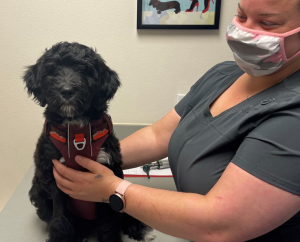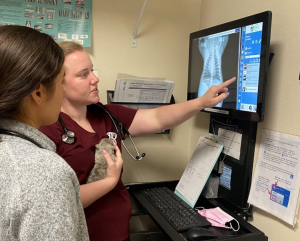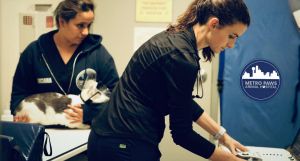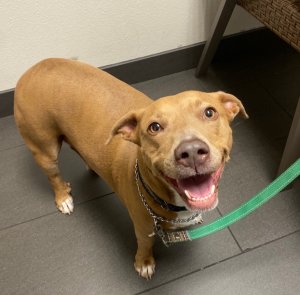How to Prepare If Your Cat or Dog Has an Upcoming Echocardiogram
If your pet has recently been diagnosed with heart disease or the possibility of heart disease, your veterinarian may have recently recommended an echocardiogram. You’ve likely turned to the internet to do some research, and we’re glad you found us! Our Metro Paws Animal Hospital team can provide accurate information on this procedure that will hopefully put your mind at ease.
We’ve rounded up some excellent information on echocardiograms, including:
- The symptoms of heart disease in pets
- What is an echocardiogram for pets?
- Why does my pet need an echocardiogram?
- Your FAQs on pet echocardiograms answered
The Symptoms of Heart Disease in Pets
First and foremost, you might be wondering how to know if your pet may have heart disease.

Schedule your pet’s wellness exam!
Some signs of heart disease in pets are:
- Difficulty breathing
- Fainting
- Coughing
- Exercise intolerance
While a veterinary cardiologist is the best person to diagnose heart disease in pets using an echocardiogram, your veterinarian may pick up on a heart murmur or irregular rhythm during a wellness exam. Some dog breeds are at particular risk for heart disease, so your veterinarian will always want to check these dogs and will likely also recommend a check if you’re considering breeding.
What is an Echocardiogram for Pets?
Just as in humans, an echocardiogram is a diagnostic tool we use to examine your pet’s heart. It enlists high-frequency soundwaves to create images of the heart functioning in real time.
Echocardiography helps us to examine the following parts and functions of the heart:
- Heart valves
- Heart chambers
- Heart walls
- Heart wall motion velocity
- Blood flow direction
- Pericardial sac
- The heart’s surrounding structures
While all that probably sounds like veterinary mumbo jumbo to you, at its core, echocardiograms are a safe, non-invasive way for us to understand why your pet might be showing signs of heart disease. We often do them in a dark, quiet room, and most pets can have the procedure done with no sedation and minimal restraint, although we determine this on a case-by-case basis.

Our veterinary team reviewing a chest x-ray
While an echocardiogram is the best tool to evaluate your pet’s heart function, the veterinary cardiologist may also enlist the following:
- Blood pressure tests
- Lab work
- Chest x-rays (to look for fluid in the lungs, which would indicate congestive heart failure)
- Electrocardiogram (assesses whether the pet’s heart is in rhythm)
Why Does My Pet Need an Echocardiogram?
A heart murmur could indicate a congenital disease in a young, otherwise healthy pet. We want to know this ASAP, as we can generally repair or improve these pets’ hearts with proper interventions. Your veterinarian would also recommend an echocardiogram if you reported any of the abovementioned symptoms, such as shortness of breath, fainting, or coughing.
What we refer to as physiological or “innocent murmurs” are typically harmless murmurs that we may hear in the hearts of young kittens and puppies. It can be challenging, however, to differentiate these innocent murmurs from those that indicate heart disease or dysfunction. That’s why we’d likely recommend monitoring the murmur at the next checkup, which with puppies and kittens, is likely soon due to their vaccination schedules, spays, neuters, etc. If we hear the murmur in the puppy or kitten’s heart at eight weeks of age, we’ll recommend an echocardiogram.
In addition to diagnosing heart disease in pets, we can use echocardiograms to see if our current medications or other interventions are working. If not, we may try another approach or a different medication or dosage.
Your FAQs on Pet Echocardiograms Answered
It’s only natural that pet parents who have been told their dog or cat needs an echocardiogram will have questions. As veterinarians, we want to ensure you’ve got the answers you need to get a diagnosis for your pet and, hopefully, on the road to recovery.
Some pet echocardiogram FAQs and their answers are:

Veterinary experts that prioritize your pet’s comfort and health.
Is an echocardiogram uncomfortable for my pet?
Not at all. While the ultrasound probe will come in contact with your pet’s body, it won’t cause any sensation. We also keep your pet on a padded table to provide extra comfort during the echocardiogram. A veterinary technician will gently restrain your pet for the 20 or so minutes it takes to do the procedure.
Will my pet need to be anesthetized/sedated for the echocardiogram?
We make this decision on a case-by-case basis, but most pets do not need to be sedated for an echocardiogram.
Is there anything I should be doing before my pet gets an echocardiogram, such as withholding food or water?
Your pet doesn’t need to fast or refrain from drinking water before an echocardiogram.
Will you need to shave my pet for the echocardiogram?
The majority of pets don’t need us to shave them for an echocardiogram, as we use a tiny amount of alcohol to separate the hair on the chest wall. We use a water-soluble gel on the ultrasound probe for contact with your pet. If your pet’s hair is very thick, there’s a slight possibility we’d need to shave them, but we’d discuss this with you first.
Can my regular/primary care veterinarian do the echocardiogram?
Because an echocardiogram is more technical than a regular ultrasound, requiring ultrasound probes (cardiac transducers), a certified veterinary cardiologist should perform them. These cardiologists also have much more experience interpreting the results and calculations/measurements (chamber size, blood flow, heart wall thickness, etc.) they get from the echocardiograms.
What is a veterinary cardiologist?
A board-certified cardiologist is a Diplomate of the American College of Veterinary Internal Medicine (Cardiology). They specialize in the diagnosis and treatment of animals with heart disease.
How long will the echocardiogram take, and how soon will I get the results?
A typical cardiology appointment takes about 1.5-2 hours.
The echocardiogram appointment time will include the following:

Happy heart, healthy pet.
- Taking your pet’s history
- Planning the testing
- Performing the echocardiogram
- Performing any other diagnostic testing that we need to do
- Giving you your pet’s results and ensuing treatment plan
These instructions will be given to you to take home, and we’ll also share them with your primary care veterinarian to coordinate a team approach to treating your pet.
We hope this information has been helpful while showing you that echocardiograms are safe, noninvasive procedures designed to help diagnose and treat your precious pets. If you suspect your cat may be suffering from heart disease, please don’t delay — call us today!
